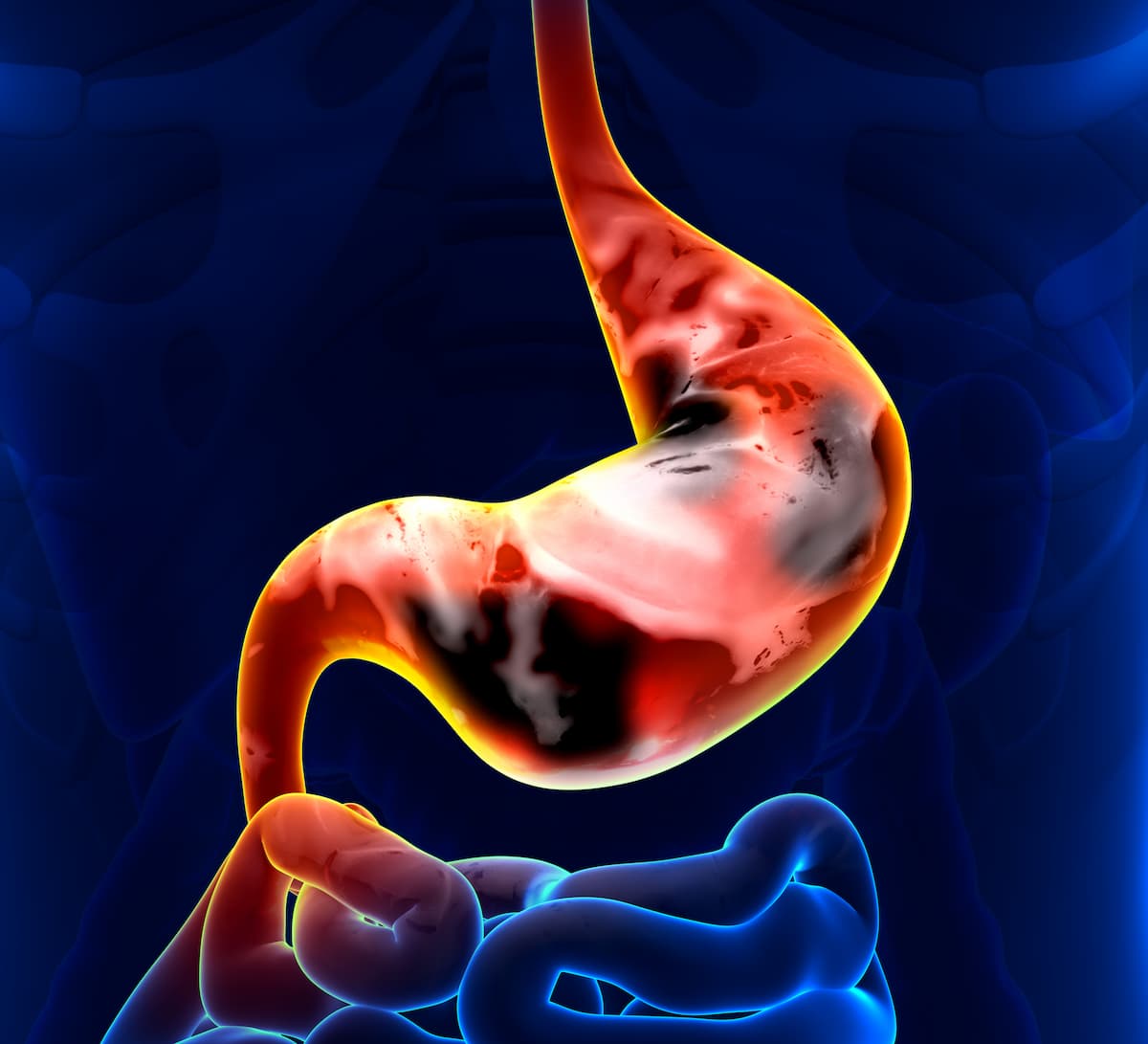Chinese Regulators Approve Tislelizumab in Advanced Gastric Adenocarcinoma
Patients from China with unresectable or metastatic gastric or gastroesophageal junction adenocarcinoma can now be treated with tislelizumab plus chemotherapy following its approval.
The Chinese National Medical Products Administration (NMPA) recently approved tislelizumab (BGB-A317) for the frontline treatment of locally advanced, unresectable or metastatic gastric or gastroesophageal junction adenocarcinoma with high PD-L1 expression, according to a press release from BeiGene.1
"With approval from the NMPA, we now have another option for our patients, and I expect tislelizumab plus chemotherapy will soon become the new standard of care in this treatment setting in China," according to an expert from the Cancer Control Center of Sun Yat-sen University.

The approval was based on findings from an interim analysis of the phase 3 RATIONALE 305 trial (NCT03777657) which supported tislelizumab over placebo in combination with chemotherapy. The tislelizumab regimen yielded a median overall survival (OS) of 17.2 months vs 12.6 months with placebo (HR 0.74; 95% CI, 0.59-0.94; P = .0056).2
The median progression-free survival was 7.2 vs 5.9 months with tislelizumab and placebo, respectively (HR 0.67; 95% CI, 0.55-0.83). Additionally, the objective response rate (ORR) favored the experimental arm at 50.4% vs 43.0%, with a median duration of response (DOR) of 9.0 vs 7.1 months, respectively.
“Advanced gastric cancer remains a significant cause of cancer-related mortality in China and we are pleased that tislelizumab plus chemotherapy demonstrated a meaningful survival benefit for patients whose tumors express PD-L1 in the RATIONALE 305 study,” Lai Wang, PhD, global head of R&D at BeiGene, said in the press release.
RATIONALE 305 randomly assigned a total of 997 patients from 13 countries and regions to receive either tislelizumab and chemotherapy or placebo and chemotherapy. A total of 546 had a high PD-L1 expression.
Patients in the experimental group received intravenous tislelizumab at 200 mg plus oxaliplatin at 130 mg/m2 every 3 weeks, oral capecitabine at 1000 mg/m2 twice a day for 2 weeks on days 1 to 14 or intravenous cisplatin at 80 mg/m2 every 3 weeks, and intravenous 5-fluorouracil at 800 mg on days 1 through 5 every 3 weeks. Patients in the control group received the same chemotherapy backbone plus a matched placebo instead of tislelizumab.
“The prognosis for patients with advanced gastric/gastroesophageal junction adenocarcinoma was poor with traditional chemotherapy treatment and we undertook the global phase 3 RATIONALE 305 trial with the aim to improve outcomes,” global principal investigator Xu Ruihua, MD, PhD, director of the Cancer Control Center of Sun Yat-sen University, said. “With approval from the NMPA, we now have another option for our patients, and I expect tislelizumab plus chemotherapy will soon become the new standard of care in this treatment setting in China.”
Tislelizumab plus chemotherapy was previously approved in China for the frontline treatment of patients with recurrent or metastatic nasopharyngeal cancer.3 The FDA delayed approval for tislelizumab as a treatment for advanced or metastatic esophageal squamous cell carcinoma in the second-line setting or later in July 2022.This was due to a delay in site inspections because of COVID-19 travel restrictions in China.4
The agent is also under review by the European Medicines Agency (EMA) for the treatment of advanced or metastatic non–small cell lung cancer (NSCLC).
References
- BeiGene receives 10th approval for PD-1 inhibitor tislelizumab in China. News Release. BeiGene. February 24, 2023. Accessed February 27, 2023. https://bit.ly/3SBpZ0Q
- Moehler MH, Kato K, Arkenau HT, et al. Rationale 305: phase 3 study of tislelizumab plus chemotherapy vs placebo plus chemotherapy as first-line treatment (1L) of advanced gastric or gastroesophageal junction adenocarcinoma (GC/GEJC). J Clin Oncol. 2023;41 (4_Suppl):286. doi:10.1200/JCO.2023.41.4_suppl.286
- China NMPA approves tislelizumab for recurrent or metastatic nasopharyngeal cancer. News Release. BeiGene. June 10, 2022. Accessed June 13, 2022. https://bwnews.pr/3mGjkDd
- BeiGene provides regulatory update on the U.S. biologics license application (BLA) for PD-1 inhibitor tislelizumab in 2L ESCC. News Release. BeiGene. July 14, 2022. Accessed July 14, 2022. https://bit.ly/3P9gFhU